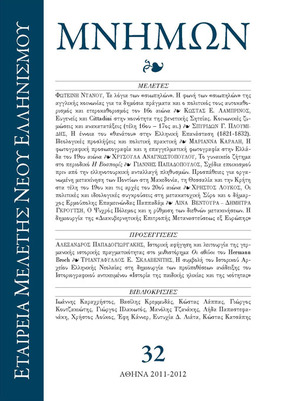Τα λόγια των «σιωπηλών» : Η φωνή των «σιωπηλών» της Αγγλικής κοινωνίας για τα δημόσια πράγματα και ο πολιτικός τους αυτοκαθορισμός και ετεροκαθορισμός τον 16ο αιώνα
Part of : Μνήμων ; Vol.32, 2012, pages 11-36
Issue:
Pages:
11-36
Parallel Title:
The words of the voiceless
Section Title:
Articles
Author:
Abstract:
Did ordinary men and women in pre-modern England have an opinion about politics? What was “politics” for the common people at a time when they had not any say in choosing who would rule them? Was popular engagement in state politics only to secure subsistence? Were “knife and fork” politics of the masses so separate from issues of “high politics” of the State? Was pre-modern commoners’ mentality, “pre-political” as well? This paper discusses early modern popular political awareness. I argue that commoners in Tudor England pursued their own political agenda, by exploiting the sovereign’s self-image as the “protector of the poor”. However, as I set out to show, in pursuing their political agenda commoners also raised issues on the content of Englishness, common good, patriotism, legitimate governance and the right of resistance. The political identity of the lower strata was not an entity fixed in its essence. On the contrary, plebeian political identity was rather shifting, changeable, and always constituting its content in particular historical contexts. The commoners’ commitment to the ideal of the“nation”, their loyalty to the government, their allegiance to their Queen, their obedience to her laws, or their active participation in the enforcement of state policies were not unconditional. The ways they practiced their political identity was interrelated to their superiors’ behavior and draw its legitimacy from the public transcript of the English Common wealth. Common prosperity, reciprocity, solidarity and, in general, protection of the poorer and weaker members of English society were ideals that constituted the meaning of “common wealth” in the plebeian mind. Those ideals were prerequisites for their giving of devotion and loyalty to the state. Thus, the commoners’ political mentality and behavior ranged from national loyalty to indifference or even animosity to state officials; from cooperation and acquiescence to covered or overt forms of opposition and active resistance.
Subject:
Subject (LC):




